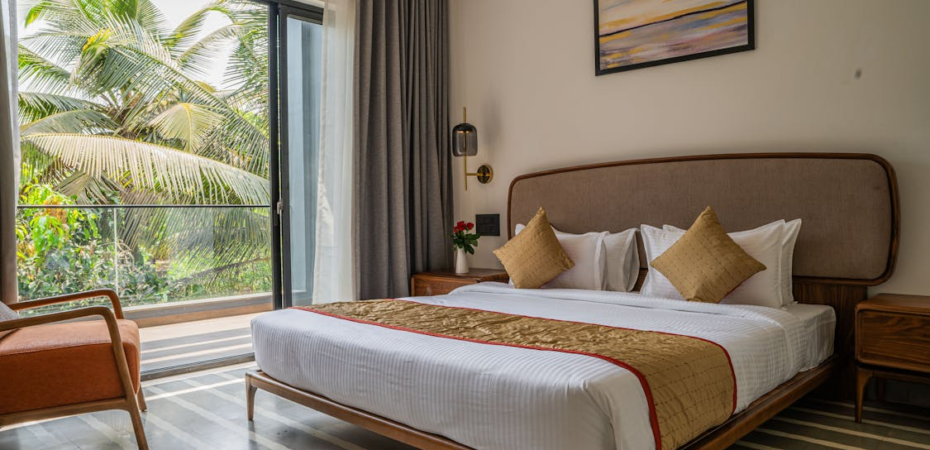The first hotel stay in another country carries a special kind of anticipation. After a long journey, the traveler makes it through customs, finds their way to the hotel, and finally clears the check-in process at the front desk.
At last, they receive the key card or traditional room key, walk down the hallway, and open the door to their temporary home. That moment, when the door swings open, is a mix of relief and curiosity. It’s more than just stepping into a room—it’s the true start of an adventure shaped by comfort, discovery, and cultural differences.
The First Impressions
For most travelers, that very first step inside a hotel room abroad is unforgettable. The layout may feel familiar yet slightly different. Some rooms are more compact than expected, while others feel surprisingly large. The décor might be sleek and modern or warm and traditional, often reflecting the personality of the destination itself.
A traveler in New York may find clean lines and functional design, while one in Bali could be greeted with natural wood, textiles, and tropical flowers. Whatever the style, the first impression sets the tone. It’s the moment when fatigue gives way to curiosity, and a sense of reassurance replaces the weariness of travel.
There’s also immediate comfort in privacy. After hours of airports, public transportation, or new streets, stepping into a room and shutting the door behind creates a sense of belonging. That simple act of turning the handle and locking the door marks the start of a traveler’s relationship with their new environment.
Just as important, however, are the details that shape that first impression—like the condition of the bed linens. Crisp, spotless sheets instantly suggest care and professionalism, and they often define how comfortable the space feels.
Hotels commonly rely on professional services. For instance, say you’re in Melbourne, Australia. Big hotels there rely on some of the most reliable linen service Melbourne has to offer. This ensures this standard is met, giving every guest the reassurance of quality and cleanliness from the very first glance.
Cultural Clues in the Details
Once the initial impressions sink in, attention shifts to the small details. These often reveal the character of local hospitality. In Japan, slippers by the bed highlight the cultural emphasis on cleanliness.
In many European countries, bathrooms may include a bidet, which might be unfamiliar to Americans. In the United Kingdom, travelers often notice an electric kettle paired with tea bags, a nod to an everyday ritual. Meanwhile, hotels in tropical destinations may offer fresh fruit or flowers as a welcome gesture.
These details can be both delightful and surprising. Something as simple as a neatly folded robe or a handwritten welcome note shows pride in hospitality. On the other hand, unusual light switches, small showers, or different toiletry options remind the traveler that they’re in a new place. Over time, these little discoveries become as memorable as visits to local landmarks.
Practical Observations
Beyond cultural touches, travelers quickly notice the practical aspects of the room. The first puzzle is often the light switches, which may be located in unexpected places or require inserting the room key card to activate power.
Electrical outlets vary widely around the world, so a quick lesson in adapters may be necessary before charging a phone or laptop. Heating and cooling systems also differ—some rooms feature individual units, while others rely on centralized systems that work in unfamiliar ways.
The bathroom can bring its own surprises. Water pressure, shower design, and towel sizes may not match what guests are used to at home. Some travelers notice the absence of washcloths, while others encounter eco-friendly touches like refillable shampoo bottles. These details may require a bit of adjustment, but they quickly become part of the experience of settling into a new country.
Emotional Impact
Once the practical details are handled, the emotional side of the experience takes over. There’s undeniable comfort in setting down luggage, taking off shoes, and exhaling in a space that feels personal and secure. The room becomes a retreat after long days of exploring and a safe base before venturing out again.

At the same time, excitement builds. For many first-time tourists, walking into the room makes the trip feel real. All the planning, saving, and daydreaming suddenly come to life in that space. Even if the room itself is modest, it represents independence, adventure, and the thrill of being somewhere unfamiliar. These moments often become the foundation of lasting memories long after the journey ends.
Beyond the Room: The View and Its Meaning
One of the most defining parts of entering a hotel room abroad is looking out the window. Whether it frames a busy street, a quiet courtyard, or a breathtaking coastline, the view is often the traveler’s first private glimpse of the destination. Unlike postcards or social media pictures, this view is uniquely personal, belonging only to the guest in that room.
The view carries meaning beyond scenery. Watching the pace of city life, or taking in the stillness of a natural landscape, connects the traveler directly to the place. This is often the moment when the realization sets in: the trip has truly begun, and everything outside the window is waiting to be discovered.
Conclusion
Opening the door to a hotel room in another country is more than just arriving at a destination. It’s the beginning of a personal journey filled with discovery, learning, and lasting impressions. From the first reaction to the décor, to the cultural clues in the details, to the practical lessons of navigating unfamiliar amenities, each part of the experience shapes the way travelers remember their trip.


 By
By 



